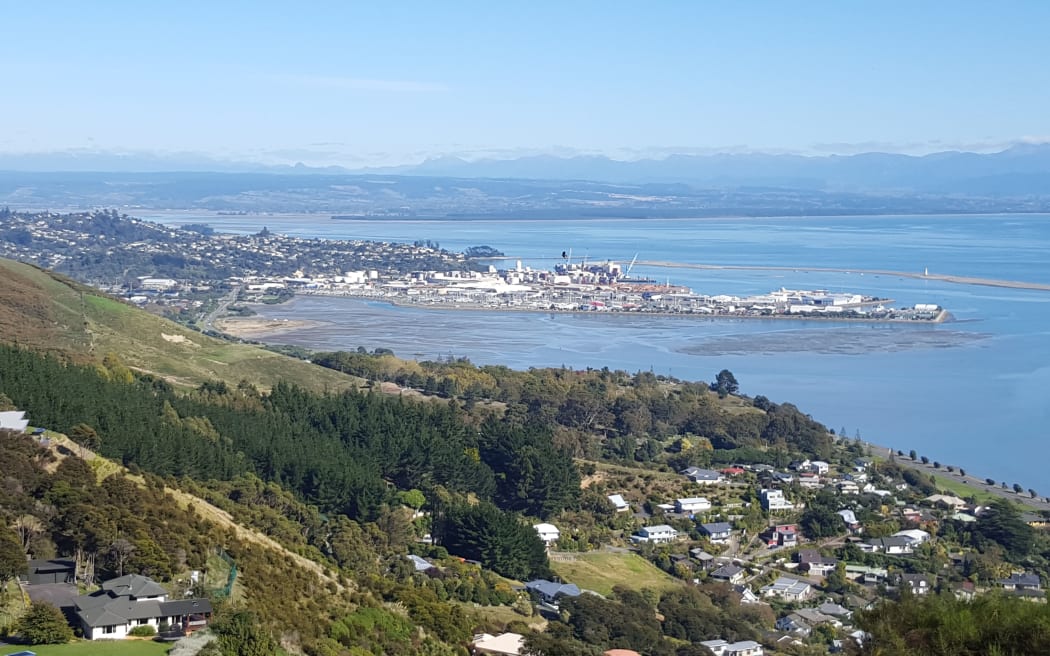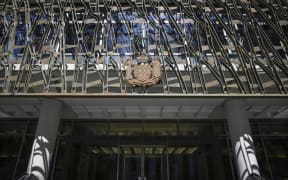
The case centres on the conditions Māori attached to land they sold to the New Zealand Company in the Nelson region in 1839. Photo: RNZ / Tracy Neal
The case of the Nelson Tenths, one of the largest litigations against the Crown in New Zealand's history, is set to go back to the High Court this month.
In 1839 Māori landowners around Nelson sold 151,000 acres of land to the New Zealand Company on the condition that 10 percent of their land would be reserved for Māori in perpetuity.
That agreement was never upheld. Rather than setting aside 15,100 acres, the Crown reserved less than 3000 acres.
The landowners, now represented by the Wakatū Incorporation, have been battling to have that land returned.
After the former National government refused to consider their claim at the Waitangi Tribunal, the claimants instead took a case to the High Court, as a private law breach of trust case.
The government fought the case all the way to the Supreme Court, which in 2017 found in favour of the owners of the Nelson Tenths.
Since then, attempts at commencing out of court negotiations with the Crown, have not been successful.
This month, the case will go back to the High Court to determine the extent of the Crown's breaches, led by kaumatua Rore Stafford, on behalf of the customary landowners.
Wakatū Incorporation chief executive Kerensa Johnston said in legal terms the case developed as a private law breach of trust case.
"We were focused on the principle that even though this is a case that involves the Crown and Maori and in our case obviously a distinct group, we very much wanted the court to apply the law of trusts in the same way that they would apply to anyone."
The case was very much about specific areas of land and the property rights that pertained to that land, she said.
Settlement in Nelson started in earnest in about 1841, which was when the Māori landholders met with the New Zealand Company and agreed to the establishment of Nelson, she said.
But there were two significant conditions, she said.
"The first was ... that one tenth of what would become the Nelson settlement would be reserved as an endowment for our families and then the second that all of what we call our papa kāinga lands, you know where we lived, our cultivation lands, would be protected."
The legal arrangement was in place by about 1845 but by 1850 there was pressure on that arrangement due to the number of settlers who were coming to Nelson, she said.
The Crown was initially meeting its obligations and in 1843 reserved 100 one acre sections in Nelson itself as part of the agreement, she said.
"By 1848 about 43 of those one acre sections were removed from the Tenths allocation."
From the 1840s when it became evident that the Crown was not keeping its promise "our whānau were advocating whether it was by letter or petition to Parliament, to the officials, and actually key Crown officials were hugely instrumental throughout that period as well in terms of advocacy".
In more recent times key kaumatua had continued to pursue the case, she said.
The Supreme Court in 2017, which found in favour of the owners of the Nelson Tenths was hugely significant, she said.
"One of the key aspects of that case was that it was the first time that our highest court found a legal duty exists independent of statute [law] or the Treaty with the respect to the Crown Māori relationship."
The Supreme Court found that the full one Tenth, or 15,100 acres of land, should have been reserved as Tenths and that the papa kāinga lands should have been preserved.
"They then sent the matter back to the High Court essentially to resolve what we would call the outstanding matters - so the issues of what and where and how."
The government had a duty to honour the original agreement, she said.
"There's a duty to account that rests with the trustee who in this case is the government so you know where is the trust property, what's happened to it over the time and then you know the most important point - how will that duty be met?"
Johnston said any Crown land in the Nelson area could potentially be subject to the case.





